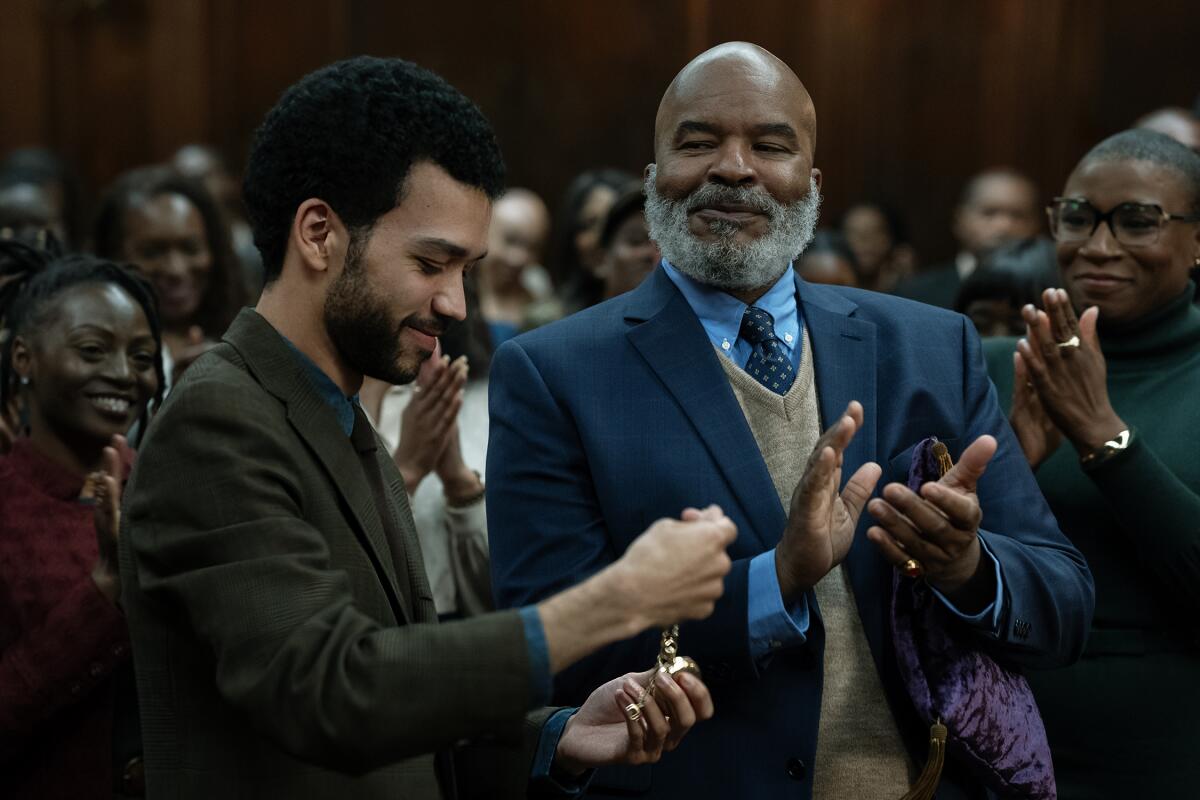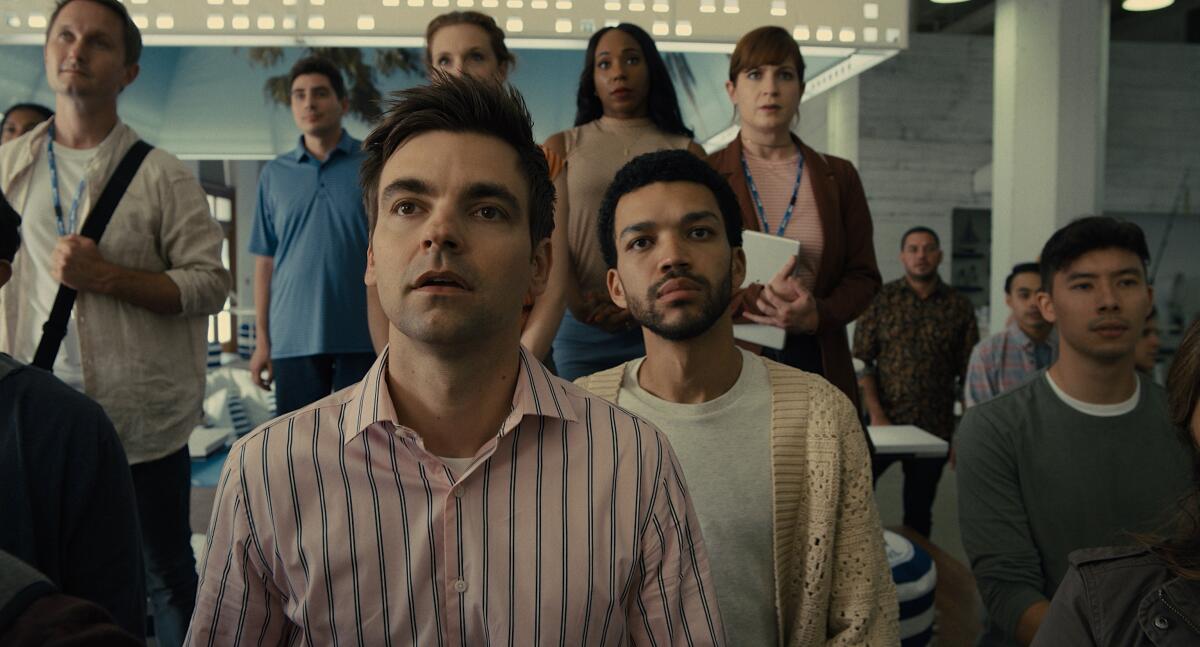Review: ‘The American Society of Magical Negroes’ is too timid to land any satirical blows

- Share via
As provocatively titled as it is, “The American Society of Magical Negroes,” the first feature from actor turned writer-director Kobi Libii, is neither the regressive atrocity that early online commentators feared nor the hard-hitting satire of systemic racism it may have intended to be. Libii’s debut lacks the potency of Boots Riley’s off-the-rails “Sorry to Bother You,” Jordan Peele’s chilling “Get Out” or Spike Lee’s underappreciated “Bamboozled,” movies that observed the Black experience with a blistering — and often blisteringly funny — perspective.
The central trope refers to Black movie characters whose sole purpose in a narrative is to aid the white protagonist in his pursuits (think Michael Clarke Duncan’s gentle convict in “The Green Mile”). These “magical” individuals are presented here as collectivized into a secret organization whose members gain supernatural abilities. Their mission? Appeasing the white majority — not because they endorse such backward thinking, but as a survival mechanism. From coddling mediocrity to solving marital issues, all of their efforts aim to prevent impending violence.
Aren (Justice Smith), a young artist in Los Angeles, exhibits an apologetic deference toward white people, making himself small, never taking up space — exactly what attracts Roger (David Alan Grier), an older, Nick Fury-like associate of the Society, to recruit him. Libii spends what feels like considerable time going over the mechanics of the underground operation. Sequences inside the headquarters (accessed through a barbershop) visually call to mind the halls of Hogwarts in the “Harry Potter” franchise: walls covered with photos of early members and antique decor to drive home its status as a long-standing institution.
One clever invention is the “white tears meter,” a floating dial that those in the Society see when a white person is in distress. In infantilizing white people as entities oblivious to their own privilege and the trauma they inflict on others, Libii makes one of his most successful statements, evincing the power dynamics at play in every aspect of quotidian life and, by way of absurdism, putting the responsibility back on white America.

After learning the ropes, Aren’s assigned client — the white person he must support — is revealed to him. Jason (Drew Tarver) is an average guy working at a clichéd tech company. Their “friendship” moves along smoothly until Aren’s romantic ambitions with their co-worker Lizzie (An-Li Bogan), in whom Jason is also interested, threaten not only his mission but the entire Society (if one of them goes off-script, they all lose their powers).
Smith has a knack for playing characters ridden with anxiety (he does so in a far better film, “I Saw the TV Glow,” coming this May) and that meek, boiling-under-the-surface persona works in a handful of chuckle-worthy instances as Aren struggles with the rules of his new high-stakes job.
Unfortunately, Libii leans too much on dialogue-heavy exchanges to illustrate his concepts. While pertinent, these spelled-out articulations ring like segments from a lecture crammed into the crevices of an overstuffed plot. Like a comedy sketch that overstays its welcome, “Society” undermines both its caustic intent and its romantic-comedy subplot. It’s not that the two are inherently incompatible; in fact, one can see that Libii introduced the latter to allow Aren to experience being seen beyond stereotypes. But there’s not enough time for the amorous liaison to develop into something that feels more than a schematic add-on.
The movie’s predictably speechified resolution, with Aren literally taking the stage to speak his truth, finally renders the sociopolitical critique mild and inconsequential, a disappointing outcome for a premise that had the potential to be truly incendiary.
'The American Society of Magical Negroes'
Rating: PG-13, for some strong language, suggestive material and thematic material
Running time: 1 hour, 45 minutes
Playing: In wide release March 15
More to Read
Only good movies
Get the Indie Focus newsletter, Mark Olsen's weekly guide to the world of cinema.
You may occasionally receive promotional content from the Los Angeles Times.










